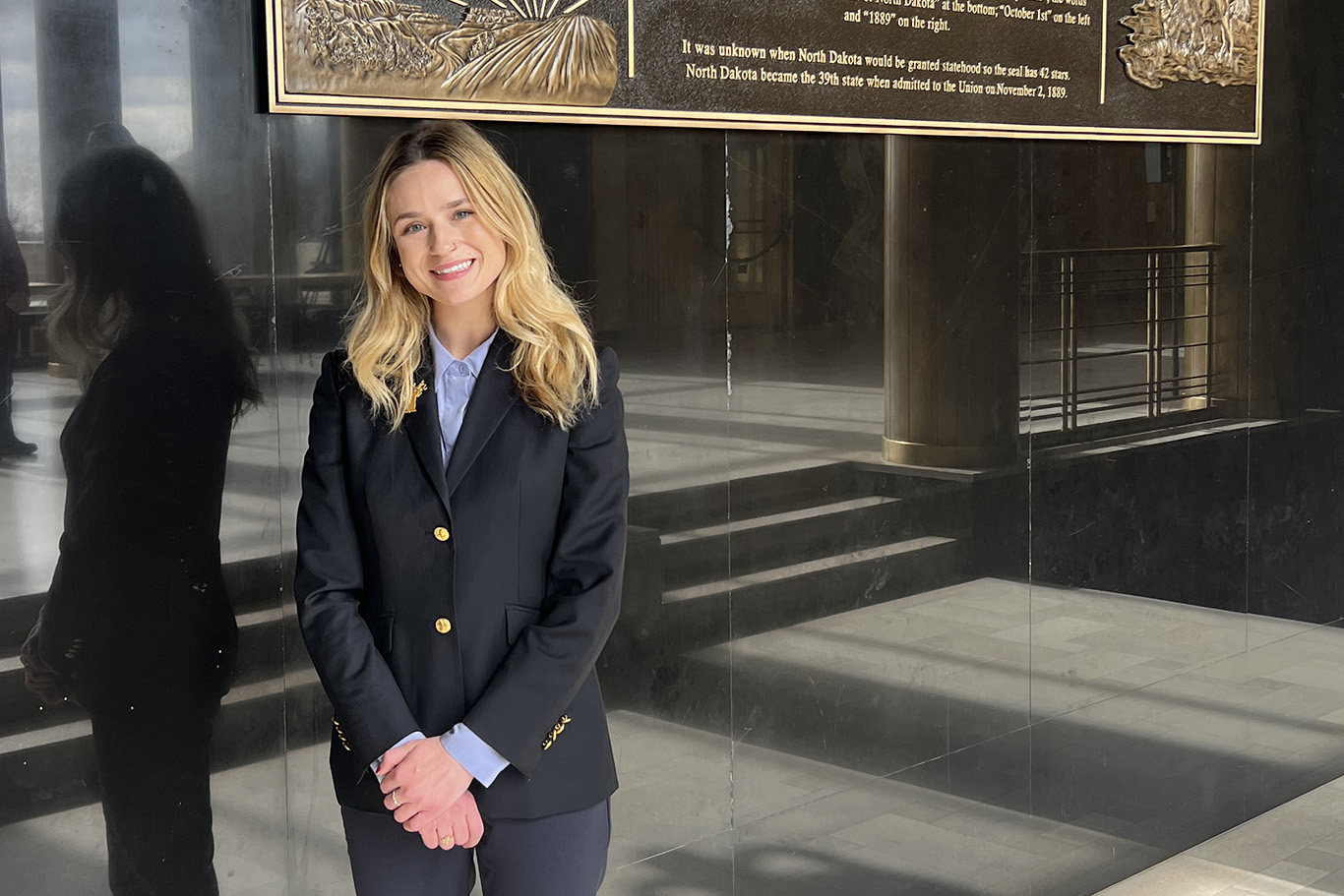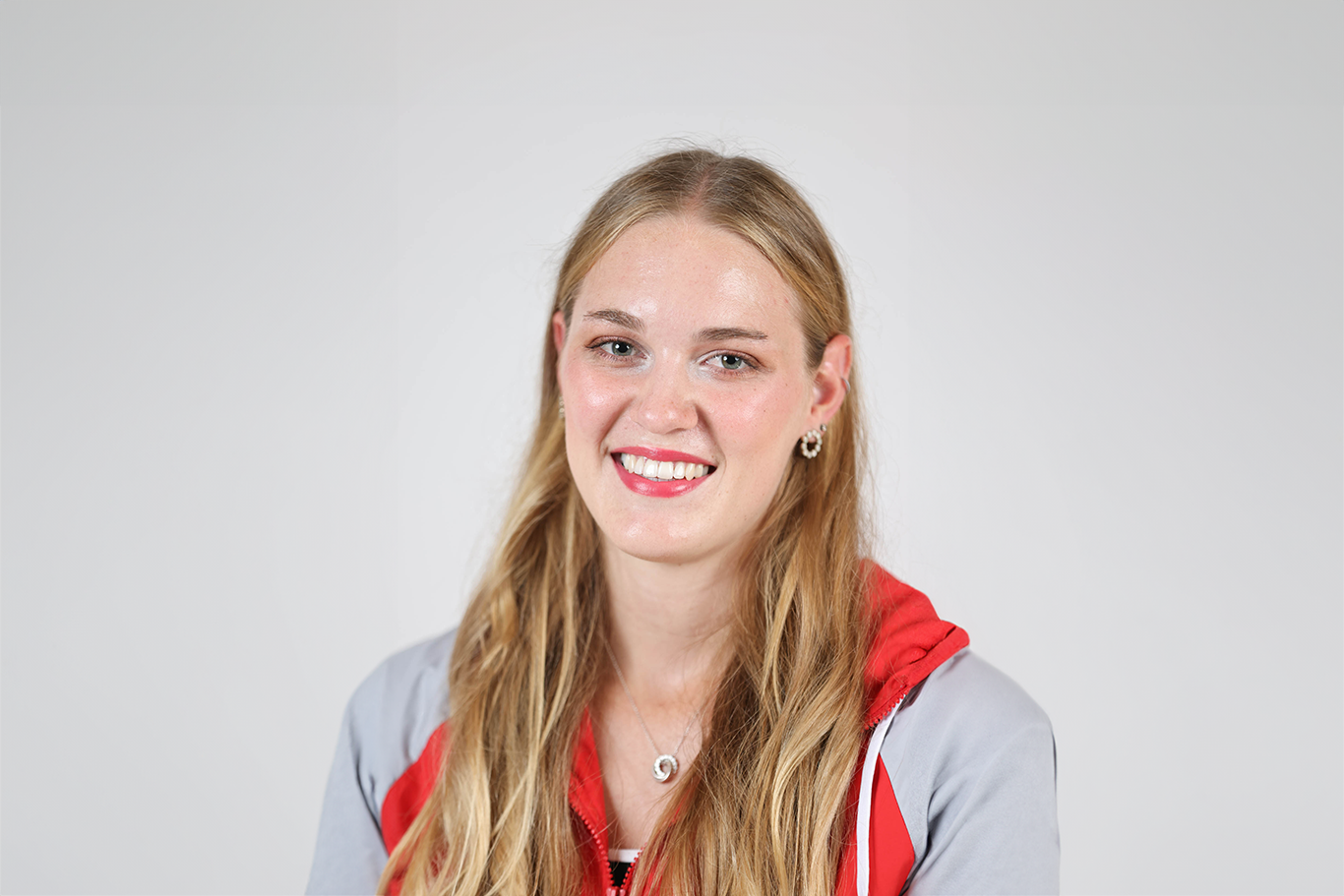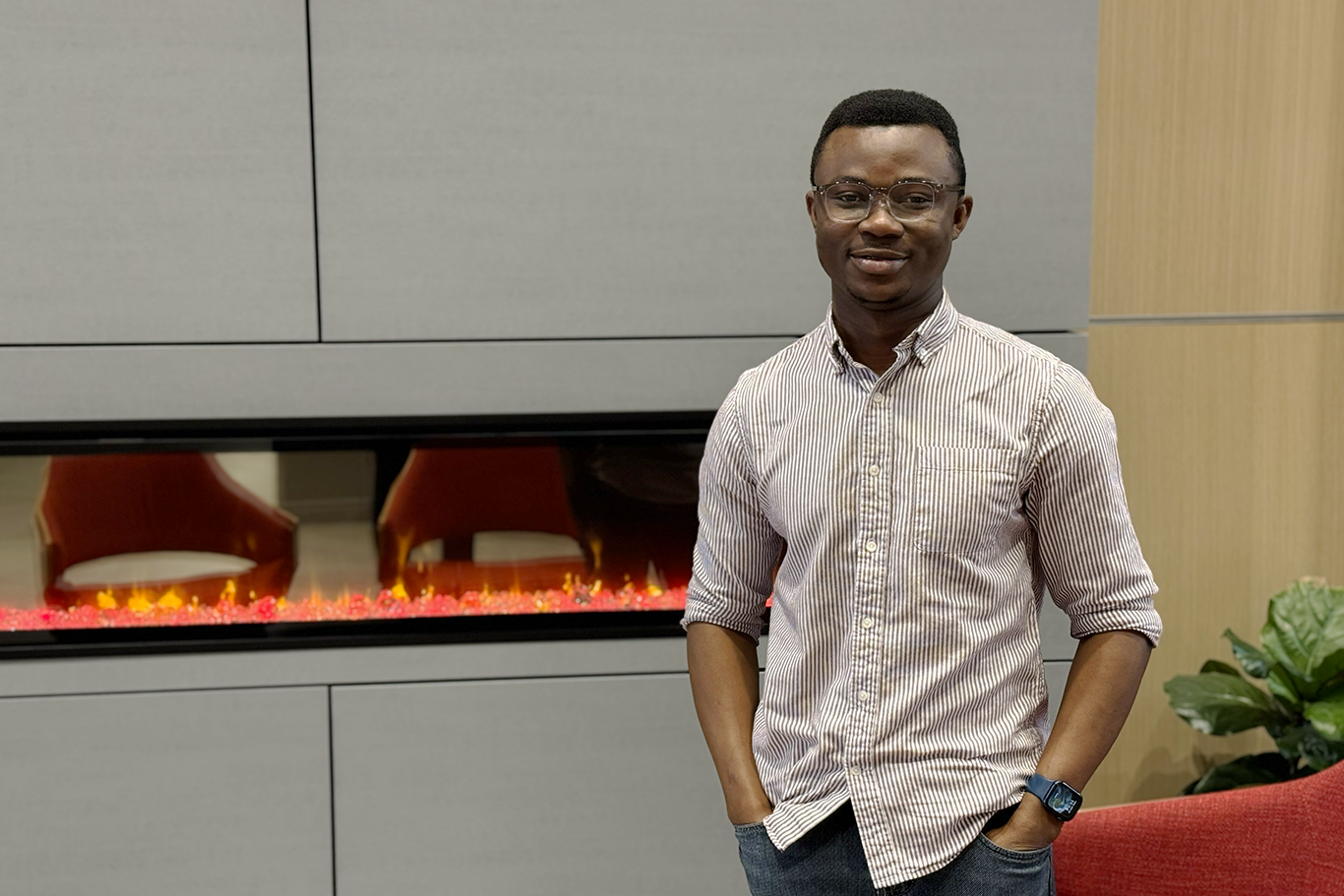Students of the Sphere
How MSUM encourages global education
Long before the word “diversity” became a hot topic, it was taught within the walls of universities, institutions where scholars are encouraged to study the world they’ve seen and have yet to discover. At MSUM, “diversity” is active and alert. For professors, addressing diversity head on is part of their job, and for students, discovering it begins in the classroom.
Diversity across campus
Associate professor and ESL program coordinator Linda Houts-Smith teaches in the department of History, Languages, Critical Race and Women’s Studies. She helped bring back and revitalize the teaching English as a second language program.
Diversity unites her department, but diversity efforts are seen around campus in every area of study.
“Diversity is modulated by the discipline,” Houts-Smith said. “In business, students learn how people interact with individuals from different cultures or companies based in other countries. It’s addressed in the English department through composition or reading literature written by people with diverse backgrounds.”
Ruth Lumb ’78 and ’82 (individualized studies and MBA), marketing professor in the Paseka School of Business, stresses the importance of global interdependence to her students.
“With globalization, connections across the world in economic, social and political aspects of life have been deepening, widening and speeding up,” Lumb said. “Economies across the world have been integrated, and there are ever-increasing interconnections among all countries in the world. An immediate consequence of the movement toward an integrated world economy is that students from MSUM will face competition from people other than from their own country, either for admission to graduate school and/or for jobs.”
While most jobs interact with people of varied backgrounds, social workers routinely work with vulnerable populations. Social work professor Jeremy Carney ’94 (social work) recognizes the need to understand the many facets that go into addressing individuals’ and families’ needs.
“If you do a good assessment with people, you learn there’s so much more to diversity than just race,” Carney said. “Our students will work with people who are marginalized or have hit a difficult patch in their life, so they need to be particularly sensitive.”
Carney works with MSUM’s global education committee and they are creating a strategic plan that weaves more global education throughout the curriculum, events and activities.
Lessons in understanding
A successful exercise Houts-Smith carries out in education classes places students in the seats of those who often feel misplaced, confused and anxious. Using Moroccan Arabic, she presents a lesson on materials students were instructed to cover. Puzzled expressions soon follow.
“The longest I ever was able to go before I pretty much lost the whole class was 12 minutes,” Houts-Smith said. “I tell them, ‘If you have students who are not native speakers in your class, what is your expectation of them? You lasted 12 minutes. You’re being trained as a teacher with all these strategies and techniques. Now imagine you’re a refugee student who doesn’t know English. What are you going to do?’”
This exercise helps teachers-in-training become aware of potential learning environments and brings a heightened sense of compassion and patience.
“Human beings are three-dimensional,” Houts-Smith said. “You have the individual personality, the cultural group characteristics, and the universal human characteristics. Your job is to interact with all and to remember that all human beings need many of the same things.”
As the world gets smaller, global connections are essential. Carney is well versed in the importance of broadening students’ perspectives and experiences to prepare them for the future.
“We work hard with students to first get an understanding of diversity and then cultural competency. I impress upon them that they are going to be working in a very diverse world, regardless of their occupation,” Carney said. “They must navigate cultural differences and that takes skill, an open mind and understanding. They have to be comfortable with the idea that things are done differently in other places and go with it.”
Through internships, study abroad or other avenues, many students dive into world communications before they graduate.
“I am continually amazed at how truly global our society is becoming,” Carney said. “One example is how we’ve had a number of grads and interns work for a local organization called Unseen. They do work all over the world out of Fargo, N.D. One student interned there last semester and spent a week in Rwanda and Haiti as part of her duties.”
In the last nine years, Carney has organized and led study abroad tours to Ireland, Spain, Vietnam, Cambodia, Taiwan, Thailand, Argentina, Norway and Denmark, to show his students how how other social work programs run.
“I strongly believe in providing opportunities for students to broaden their cultural horizons,” Carney said. “MSUM talks about transforming lives, and this is one element I can put my finger on that clearly demonstrates that. Students come back from study abroad and say, ‘I came back from this experience a different person.’"
Competency in practice
Fargo native Paige Weston ’16 (elementary inclusive education) embraces life’s adventures with grace and awe, ready to include everyone in her classroom as she begins her teaching career subbing in Fargo Public Schools. At MSUM, she was encouraged and exposed to a variety of experiences that forever changed her life, and those lessons reached far beyond Moorhead.
Feeling guided by God and willing to go wherever He led her, she stepped outside her comfort zone and did her student teaching abroad in Lugano, Switzerland.
“That was a way I felt I could really discover and learn about myself and the people around me and serve a different population I hadn’t worked with before,” Weston said.
Enfolded by the beauty of the mountains, she thrived in a culture much different than her own and recounted many of the lessons learned in class as she interacted with others and navigated her way in bordering European countries—all without phone data and the safety blanket of familiar surroundings and faces.
“I’ve been really vocal about how well prepared I felt MSUM made me for this opportunity,” Weston said. “We were in the classroom every semester with real-life applications. I knew how to handle children’s behavior, and I knew how to teach English using a certain curriculum. So when I got to Switzerland, I already had experience and the support from my professors to ask questions. I believed I could thrive.”
From learning extensively about literacy development to having someone by her side to give her input and support, Weston’s education professors encouraged her to consider teaching in places she’d never imagined.
“Dr. Erin Gillett taught things that were applicable anywhere, any place. She cared so deeply for us, it made learning incredible,” Weston said. “It’s exciting to still have favorite teachers, even when you’re in college.”
But before student teaching and the trip an ocean away, Weston’s first exposure to becoming culturally competent began in her first semester of college at MSUM in a class led by Dr. Steve Grineski.
“We learned about ways to fit into society, no matter where you are, how to help someone who’s impoverished, persecuted or oppressed, and how to be an effective teacher in those ways. That really inspired me to reach out.”
Although her student teaching venture is over, Weston is applying for jobs around the globe with maturity, empathy and a sense of adventure.
“Everyone is basically the same,” Weston said. “We all want to be loved, and we all want to have strong relationships and friendships. Whether you speak the same language, look the same, believe exactly the same things or not, we all have those desires in common, and that’s something really beautiful you can take away from any place when you go with an open mind and heart.”
This story was first published in Moorhead Magazine, Spring 2017.
Make Sure Your Story Is Heard
Let us know how your life has been changed by being a Dragon: tell us your MSU Moorhead story today!
Send Us Your Story


